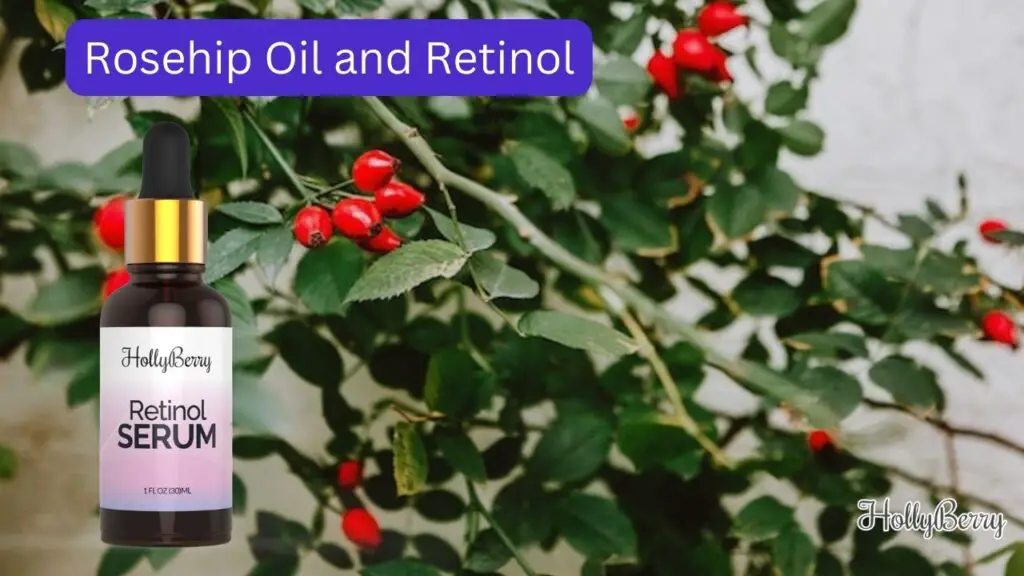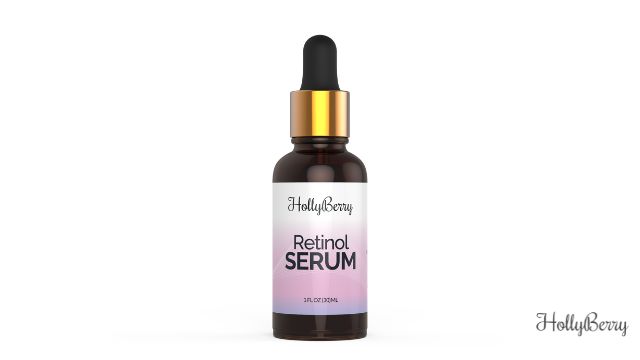
If you’re someone who loves to take care of their skin, you’re probably always on the lookout for new and effective skincare products. Two popular products in the skincare industry are rosehip oil and retinol.
Rosehip oil is known for its hydrating and anti-ageing properties, while retinol is known for its ability to reduce wrinkles, and fine lines, and improve skin texture.
But can you use these two products together? In this article, we’ll dive into the benefits and potential drawbacks of using rosehip oil and retinol together.
What is Rosehip Oil?

Rosehip oil is extracted from the seeds of the rosehip fruit. It is a rich source of essential fatty acids, vitamins, and antioxidants, making it a popular ingredient in skincare products. Rosehip oil is known for its hydrating properties and ability to improve skin texture and tone.
What is Retinol?

Retinol is a type of vitamin A that is often used in skincare products to help reduce the appearance of wrinkles, fine lines, and hyperpigmentation.
It works by increasing cell turnover and stimulating collagen production, leading to firmer, smoother, and more youthful-looking skin.
Can Rosehip Oil and Retinol be Used Together?
Yes, rosehip oil and retinol can be used together, but it’s important to use them correctly. When using these two products together, it’s essential to start slowly and build up your skin’s tolerance gradually.
Using them together can be beneficial, but it’s essential to use them in the correct order and with caution.
Benefits of Using Rosehip Oil and Retinol Together
Boosts Collagen Production
Retinol helps to increase collagen production, which is essential for keeping skin looking firm and youthful. By pairing it with rosehip oil, which is also rich in essential fatty acids and vitamins, you can help support collagen production and keep your skin looking healthy and youthful.
Reduces Inflammation
Rosehip oil is known for its anti-inflammatory properties. When paired with retinol, which can sometimes cause redness and irritation, rosehip oil can help soothe and calm the skin.
This makes it a great combination for those with sensitive skin.
Minimizes Hyperpigmentation
Retinol is known for its ability to reduce the appearance of hyperpigmentation, while rosehip oil is known for its ability to brighten and even out skin tone.
When used together, these two products can help minimize the appearance of dark spots and hyperpigmentation, leading to a more even and brighter complexion.
Potential Side Effects of Using Rosehip Oil and Retinol Together
While using rosehip oil and retinol together can be beneficial for your skin, it’s essential to be aware of potential side effects.
Some people may experience redness, dryness, or flakiness when using these two products together, so it’s important to start slowly and build up your skin’s tolerance gradually.
Additionally, it’s important to use sunscreen when using these products to protect your skin from sun damage.
Tips for Using Rosehip Oil and Retinol Together
When using rosehip oil and retinol together, it’s important to follow these tips:
- Start slowly and build up your skin’s tolerance gradually.
- Use a retinol at night and rosehip oil in the morning to avoid irritation.
- Always use sunscreen during the day to protect your skin from sun damage.
- Be aware of any potential side effects and discontinue use if necessary.
My conclusion
In conclusion, using rosehip oil and retinol together can be beneficial for your skin, but it’s important to use them correctly and with caution.
By starting slowly and building up your skin’s tolerance gradually, you can help support collagen production, reduce inflammation, and minimize hyperpigmentation. Always be aware of potential side effects and discontinue use if necessary.
FAQs for Rosehip Oil and Retinol

Can rosehip oil be used with other anti-ageing products?
Yes, rosehip oil can be used with other anti-ageing products, but it’s essential to start slowly and build up your skin’s tolerance gradually.
Can retinol be used during the day?
Retinol is best used at night to avoid sun sensitivity and irritation.
Can I use rosehip oil and retinol if I have sensitive skin?
Yes, but it’s important to start slowly and be aware of potential side effects.
How long does it take to see results from using rosehip oil and retinol together?
Results may vary, but it can take several weeks or months to see a noticeable difference in your skin’s appearance.
Can I use rosehip oil and retinol together if I’m pregnant or breastfeeding?
It’s best to consult with your healthcare provider before using any new skincare products while pregnant or breastfeeding.
Can I use rosehip oil and retinol together if I have acne-prone skin?
Yes, but it’s important to start slowly and be aware of potential side effects. If you experience increased breakouts or irritation, discontinue use and consult with a dermatologist.
Can I use rosehip oil and retinol together if I have oily skin?
Yes, but it’s important to use a lightweight formula of rosehip oil and to start slowly to avoid clogging pores.
Can I use rosehip oil and retinol together if I have dry skin?
Yes, rosehip oil can help hydrate dry skin, and retinol can help improve skin texture and tone. It’s important to use a moisturizer after applying both products to prevent dryness.
Can I mix rosehip oil and retinol in the same product?
It’s best to apply rosehip oil and retinol separately to avoid irritation and ensure proper absorption of both products.
How often should I use rosehip oil and retinol together?
It’s best to start with once a week and gradually increase usage to avoid irritation. It’s important to listen to your skin and adjust usage as needed.


